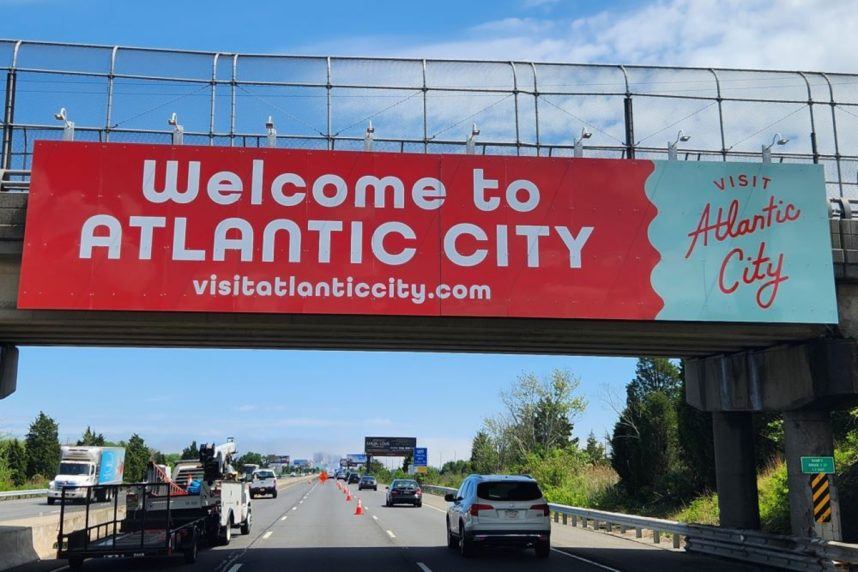Atlantic City Governance Will Remain Under New Jersey State Control
Posted on: September 10, 2025, 04:10h.
Last updated on: September 10, 2025, 04:10h.
- Atlantic City’s governance will remain under state control for another year
- New Jersey’s takeover of the casino town began in 2016
Atlantic City’s governance will remain under the supervision of the State of New Jersey for at least another year.

On Wednesday, the New Jersey Local Finance Board, a division of the Department of Community Affairs (DCA), voted to continue the Local Government Supervision Act through at least November 2026. The Supervision Act provides the Local Finance Board with the powers to supervise all finances and financial decisions related to the Atlantic City government, including those made at the City Council and in the mayor’s office.
The vote was expected, as New Jersey Gov. Phil Murphy (D), in June 2021, extended the state’s takeover of Atlantic City through November 2026. The Supervision Act is tied to the Municipal Stabilization and Recovery Act, passed in May 2016 under Republican Gov. Chris Christie, that initially gave the state control of Atlantic City’s governance.
The DCA administers the Municipal Stabilization and Recovery Act.
“DCA’s Division of Local Government Services has in-house skilled technical advisors who are available to assist the City of Atlantic City whenever necessary,” the DCA says. “The advisors have spent decades working in their respective areas of expertise, such as police, fire, revenue and finance, public works, and municipal administration. They use their knowledge, industry standards, and best practices to ensure Atlantic City departments are efficiently operating and build the capacity of Atlantic City staff.”
Takeover Continues
New Jersey’s takeover of Atlantic City was prompted to rein in runaway expenses and high taxes in the seaside gambling resort town after four casinos closed in 2014. Property tax appeals from the remaining casinos caused annual tax revenue to be tied up in courts, forcing local leaders to hike taxes on other businesses and homeowners.
That led to the casino PILOT, or payment-in-lieu-of-taxes, that the nine resorts today pay annually based on the amount of gaming revenue they generated in the prior year. Earlier this year, Atlantic County received $15 million from the state after successfully contending in litigation that the state’s adjustment of how the PILOT is calculated violated a consent order it reached with the state in a separate lawsuit in 2016.
Atlantic County Executive Dennis Levinson told Casino.org in April that a key to Atlantic City’s governance freedom is to properly tax the casinos and fold on the PILOT.
“Every single entity in the country, and possibly the world, that has casino gaming, has figured out a way to assess property taxes. Why is it that only in Atlantic City can we not get an accurate assessment on the casinos, and we need a PILOT?” Levinson asked.
The casinos can’t afford it — casinos will close — is what we’ve been continually told. Well, Hard Rock gave a $10 million bonus to their employees,” Levinson said of the Hard Rock awards made in March.
2025 marked the fourth year in a row Hard Rock doled out $10 million in annual perks to its thousands of Atlantic City workers.
Atlantic City Casino Profitability
Last month, the New Jersey Division of Gaming Enforcement reported that eight of the nine casinos remained profitable through the first half of 2025, with Bally’s being the exception. The nine casinos collectively reported a gross operating profit of $320.67 million, a 3.9% decline from the same period last year.
Casino profits totaled $731.27 million in 2022, $780.66 million in 2023, and $709.14 million last year.
Last Comment ( 1 )
What I don't get is that Gov. Phil Murphy claims he can't make the casinos non-smoking, yet he's in charge of Atlantic City. The casinos are just paying him off! Employees and customers want casinos to be non-smoking, yet we suffer every day when we work in this horrible environment, worried about getting cancer. They don't even offer health benefits. Then to be told to get another job, what a smack in the face. We all know the dangers of smoking now more than ever, and there is no other building you can smoke in except a casino. Even the seagulls on the beach have more rights to clean air than casino workers. What a disgrace!!! Do better, Phil Murphy, stand up and take a stance! End smoking in all buildings in New Jersey.